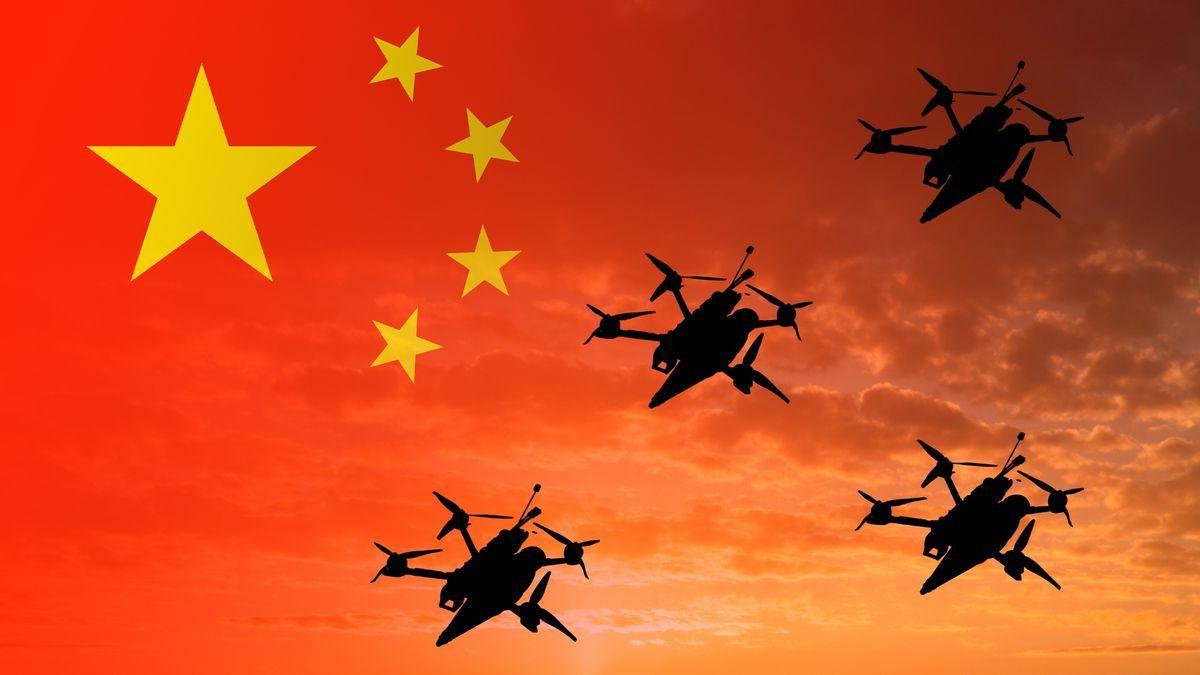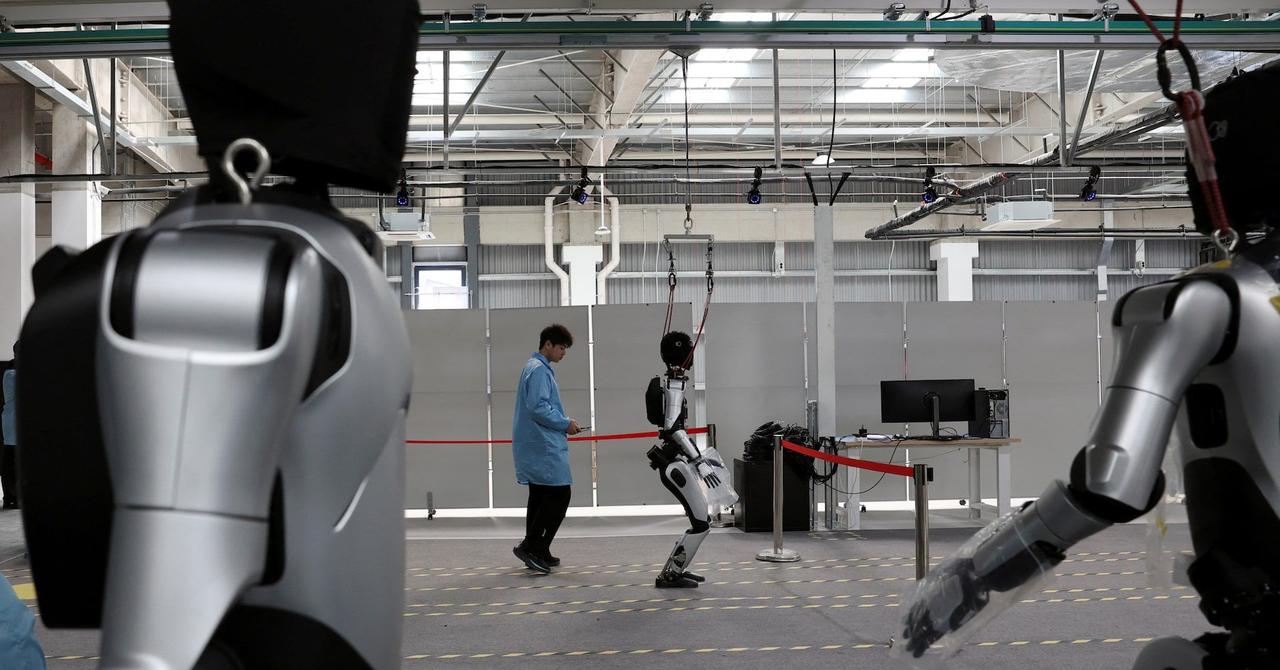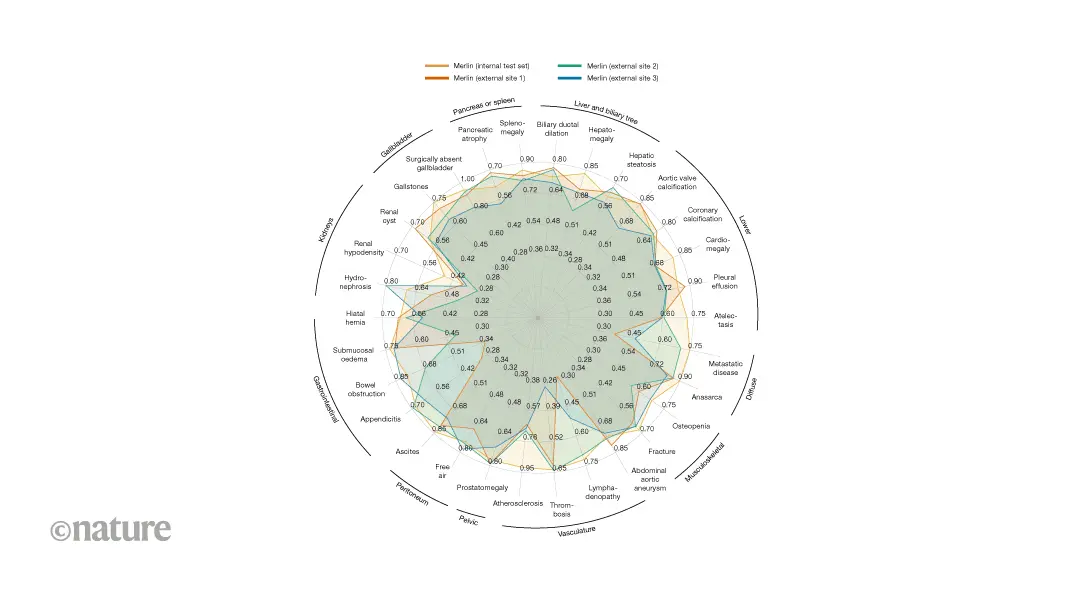China's Military Newspaper Challenges Xi Jinping's Push for Battlefield Robots
2 Sources
2 Sources
[1]
China's military newspaper defies Xi Jinping over battlefield robots
An official Chinese military newspaper has risked undermining Xi Jinping's defence ambitions by warning against the use of humanoid robots on the battlefield. In an article published on Thursday, three authors said that large-scale, normalised use could lead to "indiscriminate killings and accidental deaths", which would inevitably result in legal charges and moral condemnation. They added that militaries should conduct "ethical and legal research" on humanoid robots to "avoid moral pitfalls." The plea, which was published in the PLA Daily - named for the country's military, the People's Liberation Army - was written by Yuan Yi, Ma Ye and Yue Shiguang. However, it's unclear whether they are military officials or civilian defence experts. The authors noted that because humanoid robots remove the risk of battlefield casualties, they are likely to "become a new growth pole for military intelligence", following in the rapid expansion of drones and other unmanned vehicles. Combat use should be 'constrained' They also said that the understanding of these kinds of robots is "still in the embryonic stage with insufficient exploration and unclear positioning" and rules are key to "regulating and constraining their combat use, avoiding mistakes and loss of control". The article in the PLA Daily was a strange departure from the usual propaganda that the military-run outlet normally produces and has raised eyebrows among China watchers in terms of what exactly it was intended to accomplish. Less than two months ago, the outlet published an article praising humanoid robots and their ability to "transform humanity's perception of the future of warfare". China has a reputation for concealing and obfuscating its own capacities by pointing the finger at others - especially the US - but the article could also indicate that there are some in Beijing that disagree with the highly-automated trajectory the country is headed in. The article did not make any specific mention of the PLA, but did explicitly name other countries, including the US, Russia and Japan, which, it said, "attach great importance to the development of humanoid robots and their military applications". While many countries around the world have invested in the development of robots, artificial intelligence and unmanned vehicles, China has been the leading player in the field with the development of its 'army of robots'. Over 250,000 Chinese roboworkers China has more automation capacity than the US, Germany and Japan and more robots per worker than any other country, except for South Korea and Singapore. According to the International Federation of Robotics, between 2022 and 2023, China deployed over 276,00 roboworkers - more than half of all robots in use around the world. Last month, Chinese state media celebrated this fact with widespread reports publicising the world's first fully autonomous AI robot football match. China's defence sector has also been rapidly developing and incorporating robotics, namely with the developments of combat-trained robot dogs. Chinese military strategists within the PLA have also advocated for the use of humanoid robots specifically in combat settings. The US has not been focusing on humanoid technology as much, and is prioritising a new generation of fighter jets, as well as ramping up drone production. Wang Yonghua, a scholar at the PLA's top research institute, has previously written that humanoid robots "can simulate various human activities, better realise human-computer interaction, and are more suitable for replacing humans to complete complex tasks".
[2]
Rebellion within the ranks: China's top military paper challenges Xi Jinping's push for battlefield robots
China's top military newspaper PLA Daily published an article warning against using humanoid robots in war. The article goes against President Xi Jinping's military tech ambitions, especially his focus on high automation and AI in the army, as per the reports. Three writers -- Yuan Yi, Ma Ye, and Yue Shiguang -- wrote the piece, but it's not clear if they are from the army or civilian defence. The article says using humanoid robots in large numbers could cause "indiscriminate killings" and accidental deaths, which could lead to legal issues and moral backlash, as stated in the report by The Telegraph. It asks the military to do more ethical and legal studies before using these robots in battle. The piece admits that humanoid robots are useful for war since they reduce human deaths, and could be the next big step in military tech, like drones once were, as per the reports. ALSO READ: Largest population purge this decade? Iran expels half a million Afghans in rapid crackdown post-Israel war But it warns that the technology is still new and not fully understood, so the use of these robots in combat should be strictly controlled and regulated. This article is very unusual for PLA Daily, which normally just promotes the government's military plans. That's why many experts are surprised, as reported by The Telegraph. Just two months ago, the same paper praised humanoid robots and said they would change the future of war in a good way. The new warning might mean that some people in Beijing are not fully happy with China's heavy focus on military AI and robots, as per the report by The Telegraph. Interestingly, the article didn't name the Chinese military (PLA) directly, but it did name other countries like the US, Russia, and Japan, saying they are also investing heavily in humanoid robots for war. China is leading the world in automation, with more robots per worker than any country except South Korea and Singapore, according to the reports. ALSO READ: Bitcoin hits new all-time high at $113,804 as supply shrinks and big buyers load up From 2022 to 2023, China added over 276,000 roboworkers, which is more than half of all robots used globally. Last month, China's state media proudly showed off the world's first robot football match, where AI robots played soccer with no human help, as per The Telegraph report. The Chinese defence industry is also making robot dogs for combat, and military strategists are openly supporting the use of humanoid robots in battle. The US, on the other hand, is not focusing much on humanoid robots, but is investing more in next-gen fighter jets and drones, claims reports. A well-known scholar at the PLA's top institute, Wang Yonghua, has said that humanoid robots can mimic human actions, interact with humans, and replace soldiers in complex missions, as stated by The Telegraph. Q1. Why did China's military newspaper warn about battlefield robots? The PLA Daily warned that humanoid robots could cause accidental killings and legal or moral problems. Q2. Is China using humanoid robots in its army? China is developing humanoid robots and combat robot dogs, but some experts now want strict rules before using them in war.
Share
Share
Copy Link
China's top military newspaper, PLA Daily, published an article warning against the use of humanoid robots in warfare, contradicting President Xi Jinping's military technology ambitions and sparking debate on the ethical implications of AI in combat.
Unexpected Warning from China's Military Newspaper
In a surprising turn of events, China's official military newspaper, the PLA Daily, has published an article warning against the widespread use of humanoid robots on the battlefield. This stance appears to challenge President Xi Jinping's ambitious plans for military technology advancement, particularly in the realm of artificial intelligence and automation
1
2
.The Controversial Article
The article, authored by Yuan Yi, Ma Ye, and Yue Shiguang, whose affiliations remain unclear, raised concerns about the potential consequences of deploying humanoid robots in combat scenarios. They warned that large-scale, normalized use could lead to "indiscriminate killings and accidental deaths," which would inevitably result in legal charges and moral condemnation
1
.
Source: ET
The authors emphasized the need for militaries to conduct "ethical and legal research" on humanoid robots to "avoid moral pitfalls." They also noted that while these robots could become a "new growth pole for military intelligence," following the rapid expansion of drones and unmanned vehicles, their understanding is still in an "embryonic stage"
1
.Contradicting China's Automation Push
This cautionary stance stands in stark contrast to China's reputation as a global leader in automation and robotics. According to the International Federation of Robotics, China deployed over 276,000 roboworkers between 2022 and 2023, accounting for more than half of all robots in use worldwide
1
2
.The Chinese defense sector has been rapidly developing and incorporating robotics, including combat-trained robot dogs. Chinese military strategists within the PLA have also advocated for the use of humanoid robots in combat settings
1
.Global Context and Implications
The article in the PLA Daily specifically mentioned other countries, including the US, Russia, and Japan, as attaching "great importance to the development of humanoid robots and their military applications"
1
. This approach of pointing to other nations' developments while expressing caution about their own is not uncommon for China.Interestingly, the US is reported to be focusing less on humanoid technology and more on developing a new generation of fighter jets and increasing drone production
1
.Related Stories
Debate Within China's Military Circles
The publication of this article has raised eyebrows among China watchers, as it deviates from the usual propaganda produced by the military-run outlet. It could indicate that there are dissenting voices within Beijing regarding the highly-automated trajectory the country is pursuing in its military development
1
2
.Wang Yonghua, a scholar at the PLA's top research institute, has previously written in support of humanoid robots, stating that they "can simulate various human activities, better realise human-computer interaction, and are more suitable for replacing humans to complete complex tasks"
1
.Broader Implications for AI in Warfare
This unexpected warning from China's military newspaper highlights the ongoing global debate about the ethical implications of using AI and robotics in warfare. As countries continue to invest in these technologies, the need for international dialogue and potentially new regulations becomes increasingly apparent.
The article's call for "regulating and constraining their combat use, avoiding mistakes and loss of control"
1
echoes concerns raised by AI ethicists and military experts worldwide. As the development of military AI and robotics accelerates, the international community may need to address these ethical and legal challenges more urgently than ever before.References
Summarized by
Navi
[1]
Related Stories
China Warns of Humanoid Robot Bubble as Investment Floods Emerging Industry
28 Nov 2025•Business and Economy

China's Military AI Advancements: DeepSeek-Powered Autonomous Vehicles and Nvidia Chip Reliance
27 Oct 2025•Technology

China's humanoid robot industry outpaces U.S. with 12,000+ units shipped as supply chain battle heats up
01 Mar 2026•Technology

Recent Highlights
1
Trump bans Anthropic from government as AI companies clash with Pentagon over weapons and surveillance
Policy and Regulation

2
Nvidia pulls back from OpenAI investment as Jensen Huang cites IPO plans and complex dynamics
Technology

3
Samsung unveils Galaxy S26 lineup with Privacy Display tech and expanded AI capabilities
Technology





